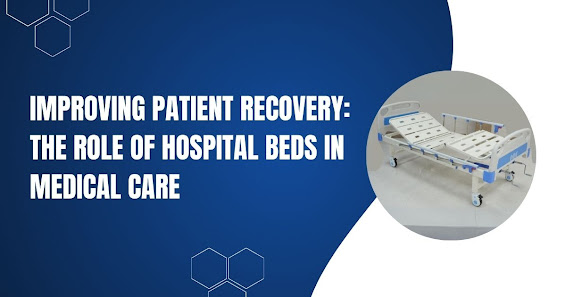Improving Patient Recovery: The Role of Hospital Beds in Medical Care
Introduction:
Regarding healthcare hospitals, the importance of beds isn't limited to sleeping areas for patients. They play a crucial role in accelerating patient recovery by providing comfort. This blog explores the multiple roles that hospital beds play in medical treatment and how they aid in increasing the quality of care for patients.
The Foundation of Patient Care:
Hospital beds are designed to meet the needs of various medical conditions and recovery procedures. As opposed to conventional mattresses, these are fitted with adjustable features and can be designed to satisfy the requirements of specific patients. This flexibility is vital in medical environments since the patient's comfort and position affect the recovery speed.
Enhanced Comfort and Mobility:
One of the main functions of a bed in a hospital is to allow patients to alter their position. It's not only related to comfort but also overall health. If patients spend a long time on their beds, the possibility of developing pressure ulcers or muscular atrophy is present. Hospital beds can be adjusted to reduce the risk by allowing patients to alter their weight to improve circulation. To give more comfort 2 functions manual bed, 3 functions manual bed, 5 functions electrical hospital beds are made.
Safety and Accessibility:
Safety rails, electronic control, and adjustable height options make hospital beds essential within the healthcare environment. These functions protect against injuries and falls, making it simpler for patients to safely move to and from their beds. If you have impaired mobility, these functionalities could make a huge impact on your mobility as well as rehabilitation. For more safety, electrical hospital beds are also introduced.
The Role in Intensive Care:
In the intensive health units (ICUs), The functionality of beds in hospitals is crucial. Modern beds with scales integrated with respiratory support and the capability to move patients between different positions are essential for critical care. They allow regular monitoring and adjustment to address the acute ICU patients' needs. They play an integral role in providing life-saving medical care.
Technological Integration:
Technology integration in hospitals has created opportunities for care for patients. Smart beds with sensors and connectivity will be able to monitor vital signs, change automatically to lessen pressure points, and notify staff about potential issues before they become crucial. Advancements in technology will enhance patient care and assist health professionals in monitoring and responding to patient requirements more quickly. As technology increases manual beds are now upgraded to electrical hospital beds.
The Psychological Impact:
The effects of hospital beds in the treatment of patients' recovery are physical and another psychological factor that must be considered. The ability to change your position, manage the bed's features, and maintain a certain amount of independence could significantly impact the mental health of a patient and recover morale.
Conclusion:
Hospital beds go far from being just furniture items. They are essential equipment in both patient care and rehabilitation. They are designed and built to meet the needs of all kinds of patients, ranging from ensuring security and comfort to using modern technology to improve care results. In the coming years, in the development of hospitals, beds will play vital roles in the world of healthcare, which will help enhance patient healing and improve medical treatment. At Medworld trade, you will have various types of hospital beds.
Comments
Post a Comment